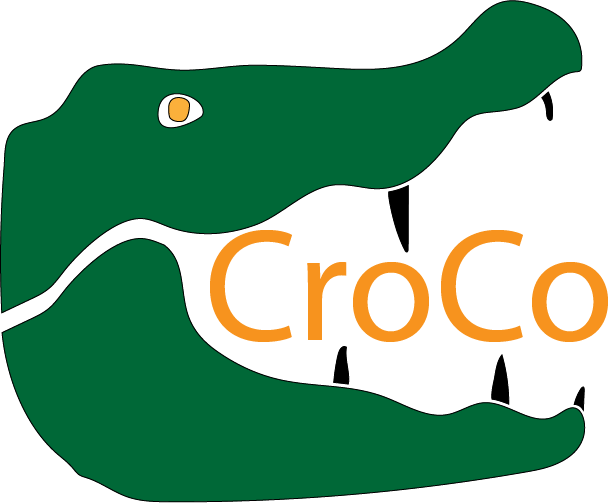Functions documentation for write functions¶
xTable¶
- Write to: Directory in which to save xTable file
Functions to read and write xTable data.
-
croco.xTable.Read(xTable_files, col_order=None, compact=False)[source]¶ Read an xTable data structure from file
Parameters: - xTable_files – path to the xtable file(s)
- col_order (list) – List of xTable column titles that are used to sort and compress the resulting datatable
- compact (bool) – Whether to compact the xTable to only those columns listed in col_order
Returns: xTable dataframe object
Return type: xtable
-
croco.xTable.Write(xtable, outpath, col_order=None, compact=False)[source]¶ writes an xtable data structure to file (in xlsx format)
Parameters: - xtable – data table structure
- to write file (outpath) –
- col_order (list) – List of xTable column titles that are used to sort and compress the resulting datatable
- compact (bool) – Whether to compact the xTable to only those columns listed in col_order
xWalk¶
The xWalk (http://xwalk.org) command line tool can be utilised to compare experimental cross-links with an available three-dimensional model (e.g. a crystal structure). CroCo can generate a list of cross-linked atoms with the corresponding indices as required for xWalk. To use xWalk in your analysis, select “xWalk” as output format in CroCo and provide the following information:
- Write to: Directory in which to save xWalk file
- OptionsWindow:
- PDB to map xlinks: Name of a PDB file that should be analysed by xWalk
- Offset: shift between PDB AA indices and the xTable
- Chains: comma separated list of protein:chain allocations, e.g. ProteinA:AB, ProteinB:C
- PDB Atom code (Text): A PDB atom code (e.g. CB) that should be used for distance calculation
The generated file (FILENAME_xWalk.tsv) is then used as input for xWalk as follows (the complete documentation of xWalk parameters can be found by calling ´´java Xwalk –help´´)
Functions to write data as input for xWalk.
-
croco.xWalk.Write(xtable, outpath, pdb, offset, chains, atom)[source]¶ Convert xTable into a list format that can be used as input for the xWalk standalone programme.
Format is:
index pdb-file RESIDUE-NO–ATOM RESIDUE-NO–ATOM
As xWalk can only validate one protein at a time, the function generates several oouput files for all intra-protein cross-links
Parameters: - xtable (pandas.DataFrame) – data table structure
- pdb (str) – PDB-file name
- offset (list or str) – shift between PDB AA indices and the xTable
- chains – (dict or str) comma separated list protein:chain allocations
- atom (str) – Atom identifier (e.g. CB)
- outpath (str) – path to write file
xVis¶
- Write to: Directory in which to save xVis file
Functions to write data structures as input for the xVis webserver (https://xvis.genzentrum.lmu.de/CrossVisNoLogin.php).
customTable¶
- Write to: Directory in which to save the customTable csv file
- OptionsWindow: customTable template file
customTable Format¶
[header]
Protein 1, Protein 2
[data]
[prot1], [prot2]
[footer]
This is the footer of the file
- Everything between [header] and [data] is considered the header and is printed once on top of the output file
- In the [data] block columns identified by their xTable header are
written in substitution of the header name.
- E.g. instead of
[prot1], [prot2]a line likeSPA_STAAU, IgG4_heavyis written for every line in the xTable file - Everything not enclosed in brackets will be written as is
- If an invalid header name is given in brackets, the program will stop
- E.g. instead of
Functions to write crosslink data as defined by a user-provided template.
-
croco.customTable.Write(xtable, outpath, customTemplatePath)[source]¶ writes an xtable data structure to file (in xtable format) based on a user-provided template file
Parameters: - xtable – data table structure
- to write file (outpath) –
- customTemplatePath – Path to template file defining the output structure
DynamXL¶
- Write to: Directory in which to save the DynamXL file
Converts xTable data into cross-link information file for the dynamXL analysis software:
K189 NZ K192 NZ 18 K189 NZ K196 NZ 5 K200 NZ K192 NZ 1 K236 NZ K189 NZ 3
dynamxl.chem.ox.ac.uk
xiNET¶
- Write to: Directory in which to save xiNet file
- Functions to write data for the xiNET data
- visualisation tool (http://crosslinkviewer.org)
pLabel¶
- Write to: Directory in which to save the pLabel file
- OptionsWindow: Directory containing the corresponding mgf-files - The mgf filenames must match the rawfile names given in the xTable
- OptionsWindow:
Merge mgf fileswill generate a new mgf-files containing only those spectra that were references in the xTable. It will adopt all paths in the pLabel files to match the location of the merged mgf-file.
Functions to write pLabel data.
-
croco.pLabel.Write(xtable, outpath, mgfDir, xlinker, mergepLabel=False)[source]¶ Converts xtable data structure to (multiple) input file(s) for the pLabel cross-link annotation tool
Parameters: - xtable – data table structure
- outpath – path to write file (w/o file extension!)
- xlinker – xlinker as given to pLabel
- mergepLabel (bool) – Whether to generate a new MGF and single pLabel file

